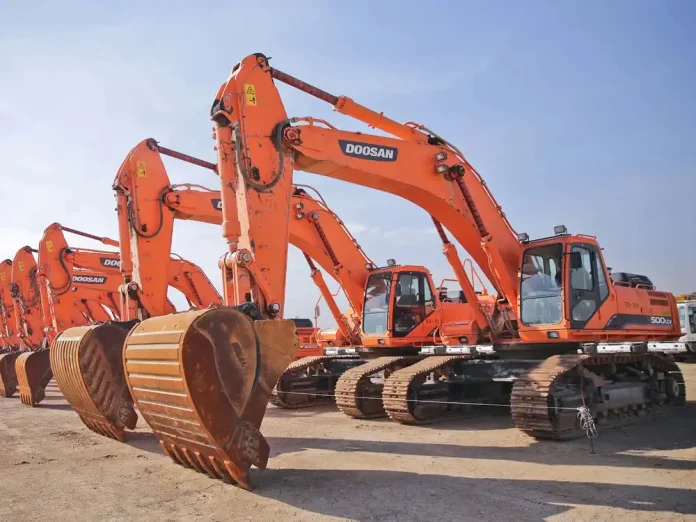Who has not heard of excavators? It is one of the most popular pieces of equipment in the construction industry.
Excavators are large, powerful machines that are frequently employed in excavation operations, mining, and construction projects. Excavators come in a variety of types that are each constructed and designed for a particular use or set of circumstances. They are suitable for almost every other construction project. Their versatility offers a wider range of productivity in forestry, agriculture, and construction. When finding excavators for your project, you will find many types and sizes in the market. However, choosing the perfect one for your project might be difficult as each one has specific features.
In this blog, we’ll examine the various excavators available on the heavy equipment market, as well as their distinctive characteristics and uses.
-
Hydraulic Excavators
One of the excavators that are most frequently utilized in the sector of heavy machinery for sale is the hydraulic excavator. These excavators are frequently employed in excavation and construction work, and they include hydraulic systems that make them incredibly effective and adaptable. These excavators’ hydraulic systems are driven by an internal combustion engine or an electric motor. From modest mini-excavators to massive, heavy-duty excavators with a digging depth of up to 120 feet, hydraulic excavators are available in a variety of sizes and capabilities.
-
Crawler Excavators
In terms of adaptability and effectiveness, crawler excavators are comparable to hydraulic excavators. But, as their name implies, they have a set of tracks that are akin to those on a tank that let them move about and operate in uneven terrain, soft soils, and muddy or hazardous situations. For excavation tasks in mining, building, and demolition projects, crawler excavators are perfect.
-
Mini Excavators
Mini excavators are compact excavators that are perfect for job sites with limited space. They have a digging depth of up to 15 feet and are made to easily function in small and constrained spaces. Small excavators are ideal for gardening, home repair, and residential construction tasks.
-
Wheel Excavators
Wheel excavators are easy to transport on roads and highways because they lack tracks and use wheels instead. These excavators can operate at high speeds, making them ideal for big excavation jobs like building roads and other infrastructure. Additionally, they have a hydraulic boom that can lift heavy debris or objects.
-
Long Reach Excavators
For digging beneath structures like bridges or tall buildings that require a longer reach, long-reach excavators are suitable. These excavators are appropriate for foundation excavation or demolition work since their boom and arm that may extend to greater heights. Dredging and deep-sea excavation projects also require long-reach excavators.
-
Amphibious Excavators
Amphibious excavators are a unique kind of excavator made for use in wetlands and aquatic areas including marshes, rivers, and swamps. These excavators include a series of retractable pontoons that allow them to navigate through muddy or wet terrain and float on water. For jobs like dredging, reclamation, or flood control, amphibious excavators are perfect.
Conclusion
Excavators are available in an extensive variety from the heavy equipment market, each with their own distinct features, applications, and specifications. Construction firms and contractors can choose the type of excavator that is most suited for their project requirements by having a better understanding of the various excavator types and their purposes. Choosing the proper excavator will assist increase productivity, efficiency, and profitability over time in any industry, including mining, construction, and demolition.





